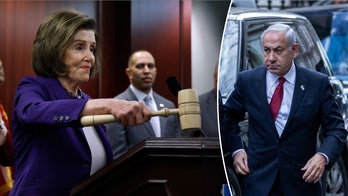President Bush is handing off more than just a financial crisis and wars in Iraq and Afghanistan to Barack Obama. The president-elect will also inherit a potentially escalating conflict between India and Pakistan that could fundamentally alter the war on terror.
Indiam officials are pointing fingers at the Pakistani government for the terrorist attacks in Mumbai, India's financial capital, that left at least 174 dead, including six Americans.
If the Pakistani government, which has condemned the attack, is found to be involved, foreign policy analysts believe that could lead the longtime nuclear-armed rivals to the brink of all-out war.
"It could be disastrous," said Caroline Wadhams, a senior policy analyst for national security at the Center for American Progress.
"There would be repercussions for the world and the war in Afghanistan," she said.
Analysts agree that Bush has made the right initial moves and that there should be close coordination between him and Obama on the issue.
Bush sent the FBI to India to help with the investigation and assured the country's prime minister, Manmohan Singh, that the U.S. government will "devote the necessary resources and personnel to this situation."
Obama expressed sympathy for the victims of the terror attacks on Monday during a news conference in which he introduced his national security team. But he declined to say whether the Indian government would be justified in pursuing terrorists in next-door Pakistan.
"This is one of those times when I have to reiterate there is one president at a time," Obama said.
"We're going to be engaged in some very delicate diplomacy in the next days and weeks, and I think it would be very inappropriate of me to comment."
Bush has seven weeks to help investigate the attacks and try to calm tensions before Obama is inaugurated.
"I think both the Bush administration and the Obama transition team will have to shift part of their attention from Afghanistan to defusing the India-Pakistan crisis," said Lisa Curtis, a senior research fellow at The Heritage Foundation who focuses on national security.
She called the Mumbai attacks a "watershed moment" for the United States.
"It's going to complicate the war on terror," she said.
If tensions ratchet up between the two nations, Pakistan, which has been an uneasy ally of the United States in the war on terror, will likely declare that it cannot fight terrorism on its western Afghanistan border because it must focus on its eastern border with India, Curtis said.
Wadhams said the Mumbai attack signals that terrorism is not going away.
"This is a huge issue that the next administration will have to focus on," she said, explaining that the top priority will be how to handle Pakistan, especially if terrorist groups in that country were responsible for the attacks in Mumbai.
"How is the U.S. going to support Pakistan's efforts to fight terrorism while demanding greater action to eliminate these rogue elements?" she said.
Curtis said this crisis resembles the India-Pakistan military standoff early this decade that came after a militant attack on the Indian Parliament that left 14 people, including the five men who attacked the building, dead in December 2001.
At that time, India blamed the attacks on two Pakistan-based militant groups fighting Indian rule in Kashmir, Lashkar-e-Taiba and Jaish-e-Mohammad, both of which were backed by Pakistan's Inter Services Intelligence agency, a charge Pakistan denied.
Tensions died down following international diplomatic mediation, which resulted in the 2002 withdrawal of Indian and Pakistan troops from the International Border.
That same year, Lashkar was banned in Pakistan under pressure from the U.S., a year after Washington and Britain listed it as a terrorist group. It is since believed to have emerged under another name, Jamaat-ud-Dawa.
The Pakistani government denies any link to Lashkar-e-Taiba.
The Associated Press contributed to this report.




